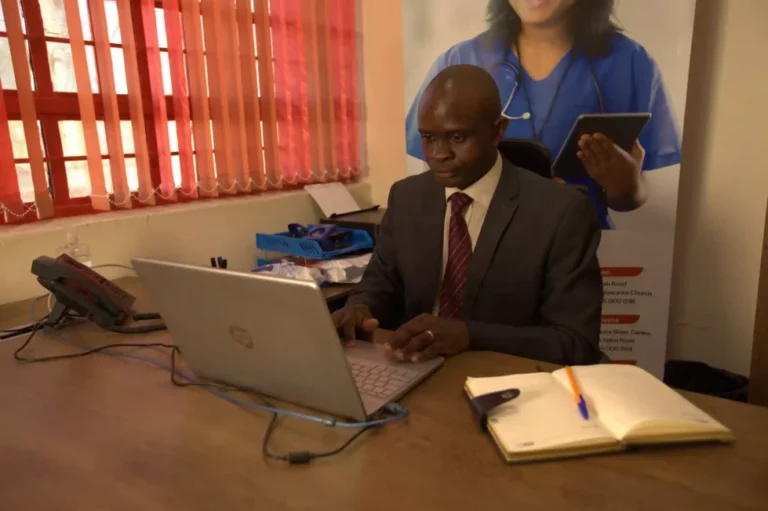Micro, Small, and Medium Enterprises (MSMEs) are the lifeblood of Kenya’s economy, contributing nearly 40% of GDP and employing millions.
The sector accounts for over 90% of all private enterprises, forming the backbone of the Kenyan business landscape. Subsequently, it employs 93% of the labour force, providing significant job opportunities.
MSMEs cater to local demand for various services, ensuring goods and services reach communities across Kenya besides contributing to industrial development by acting as larger companies’ suppliers, distributors, and partners.
However, they are more susceptible to different crises compared to large corporates and their growth is often hindered by limited access to finance. Traditional lenders perceive MSMEs as high-risk due to their informal nature and lack of collateral.
This credit constraint was further exacerbated by the COVID-19 pandemic, leading to the closure of 20% of small businesses in Kenya according to The FinAccess COVID-19 MSE Tracker Survey.
“By March 2021, about 20% of businesses had closed, of which 11% closed during the 2020 lockdown period, while 9% closed between November 2020 and March 2021, citing reduced sales and lack of operating capital. Only 27% of businesses that closed during lockdown in 2020 had reopened by March 2021,” reads the survey findings.
MSMEs faced reduced demand, supply chain disruptions, and financial constraints. These challenges were aggravated by the COVID-19 pandemic containment measures on social distancing, partial lockdowns, curfews and restrictions on domestic travel which led to unemployment and reduced incomes in the MSME sector.
As of June 2020, according to the Kenya Post-COVID Economic Recovery Strategy, a significant portion (37%) of MSMEs were operating at less than half their capacity, indicating a major decline in production output.
During the period businesses suffered significant revenue losses. 30% experienced a complete loss (65-100%) of sales turnover, while another 49% reported losses between 30-64%.
Consequently, 86% of MSMEs faced cash flow constraints. This hampered their ability to meet basic obligations like paying taxes, employee salaries, and covering operating costs.
EIB Financing and Challenges for MSMEs in Kenya.
During the period, the European Investment Bank (EIB), in collaboration with the European Union as part of Team Europe, provided significant support to MSMEs through partnerships with local banks.
EIB provided a unique financing solution, an intermediated lending model, in which the EIB doesn’t directly issue loans to MSMEs but instead partners with local financial institutions that already know the clients (SMEs) very well including their credit history and unique financing needs
“The EIB is a bank that cannot go into small loans but through the intermediary of local banks, it is possible to go into that market segment,” said the EU Ambassador to Kenya, Henriette Geiger.
The European Investment Bank provided credit lines to established Kenyan banks like Co-operative Bank and Equity Bank, known for their experience working with MSMEs. These banks act as intermediaries, leveraging their understanding of the local market and individual client needs to allocate loans responsibly.
Benefits and Impact of EIB Funding for MSMEs
EIB financing offered several advantages for Kenyan MSMEs:
- Affordable Terms: EIB credit lines enable local banks to offer loans with longer tenures and attractive pricing rates than traditional commercial banking options, making them more accessible for MSMEs.
- Growth and Job Creation: Increased access to capital empowers MSMEs to expand their operations, hire more staff, and contribute significantly to job creation.
“The loans that are provided have enabled local banks to pass on favourable terms including longer tenures and affordable interest rates to the MSMEs here. They must sustain their business, to grow their business, and to create sustainable jobs,” said EIB’s Edward Claessen, the Head of the Regional Hub for East Africa.
Under this program, the EIB partnered with two local banks to support access to affordable finance for MSMEs facing COVID-related business challenges.
One of the SMEs that benefited from this partnership included an Equity Afia Clinic Chain owned by Dr Anthony Kinyanjui, a Medical Officer in charge of Equity Afia, Donholm, Nairobi.
Dr Kinyanjui used EIB funding through Equity Bank to expand his clinic network across Nairobi’s Eastlands, improving access to affordable healthcare for residents.
“[One] of the obstacles that we have been encountering is access to capital. When the opportunity to benefit from the European Investment Bank facility came, it came in handy. So we have been able to expand to every estate in Eastlands,” Dr Kinyanjui said.
“We have created a lot of jobs, from one clinic having only a few staff, 4 to 5, to currently having over 150 staff. And of course, indirectly creating many other jobs in the community,” adds Kinyanjui.
Market Implications
The EIB’s intermediated lending model demonstrates a successful approach to financing MSMEs in developing countries. By partnering with established local banks, the EIB ensures responsible loan allocation and ensures that funds reach deserving clients.
This approach fosters a thriving MSME ecosystem, contributing to sustainable job creation, economic growth, and improved access to essential services like healthcare.




